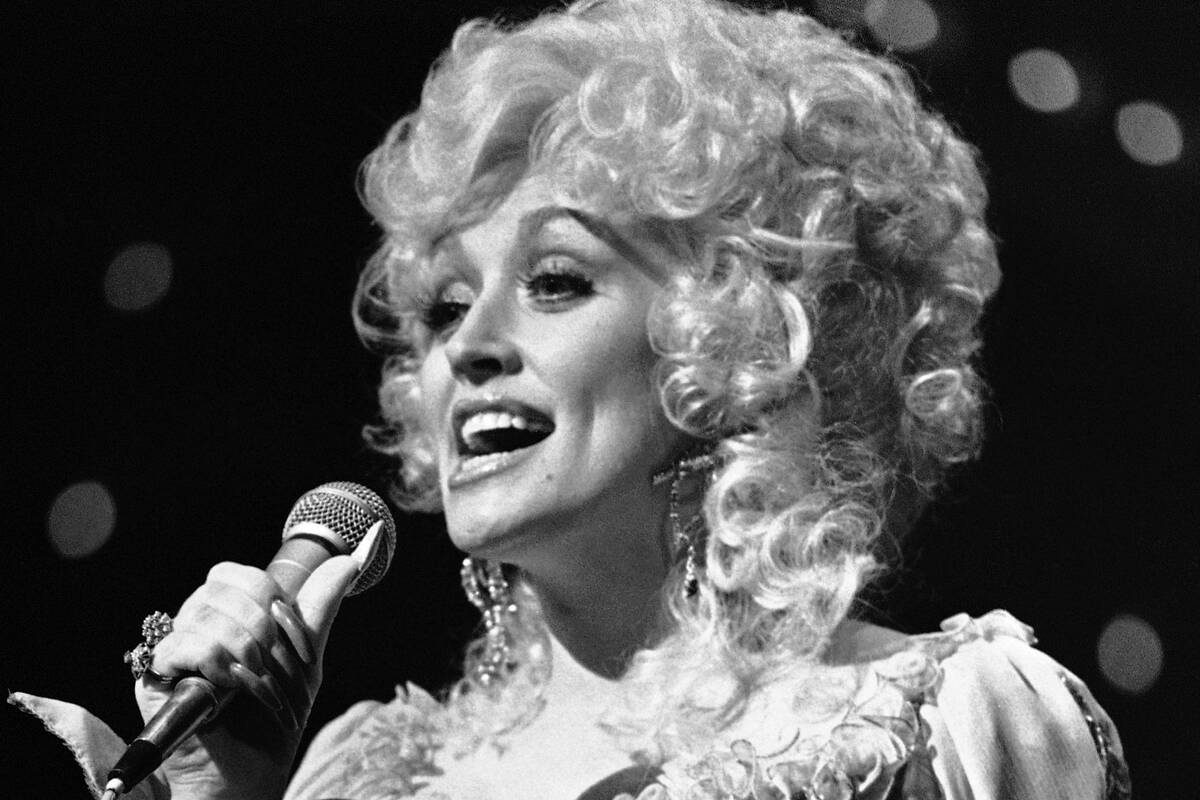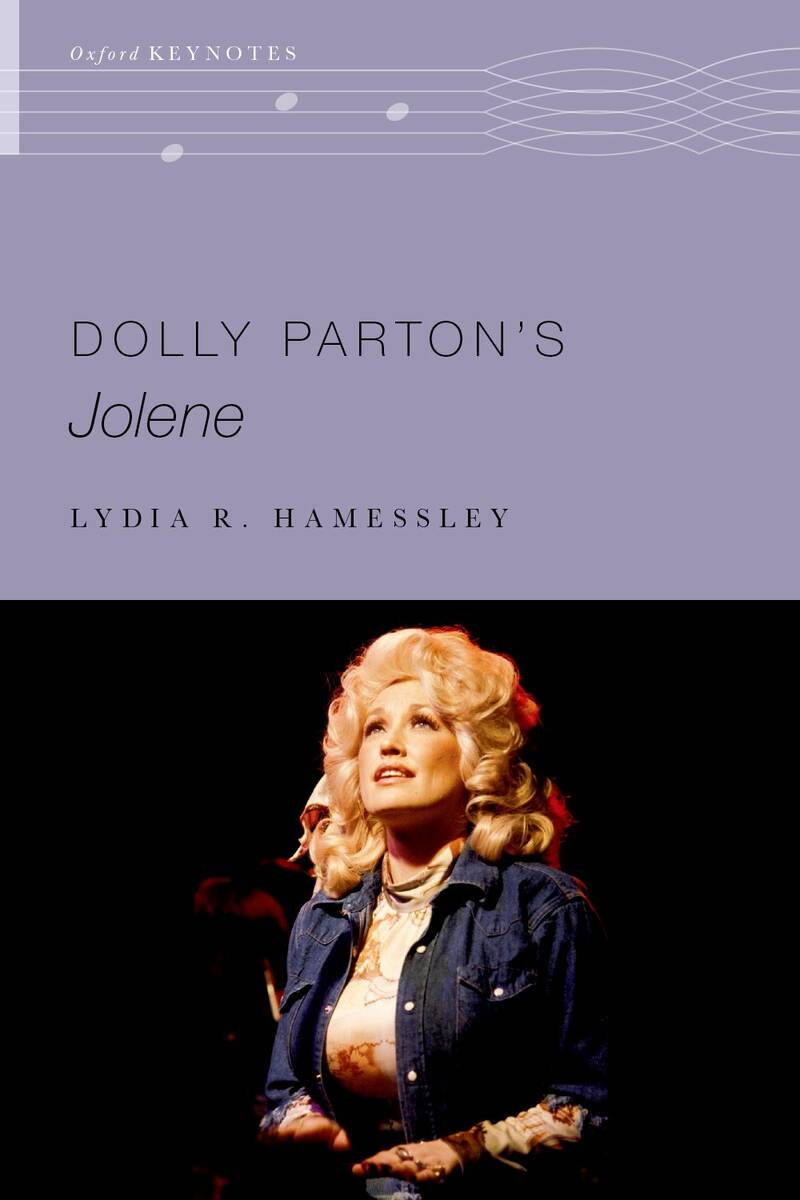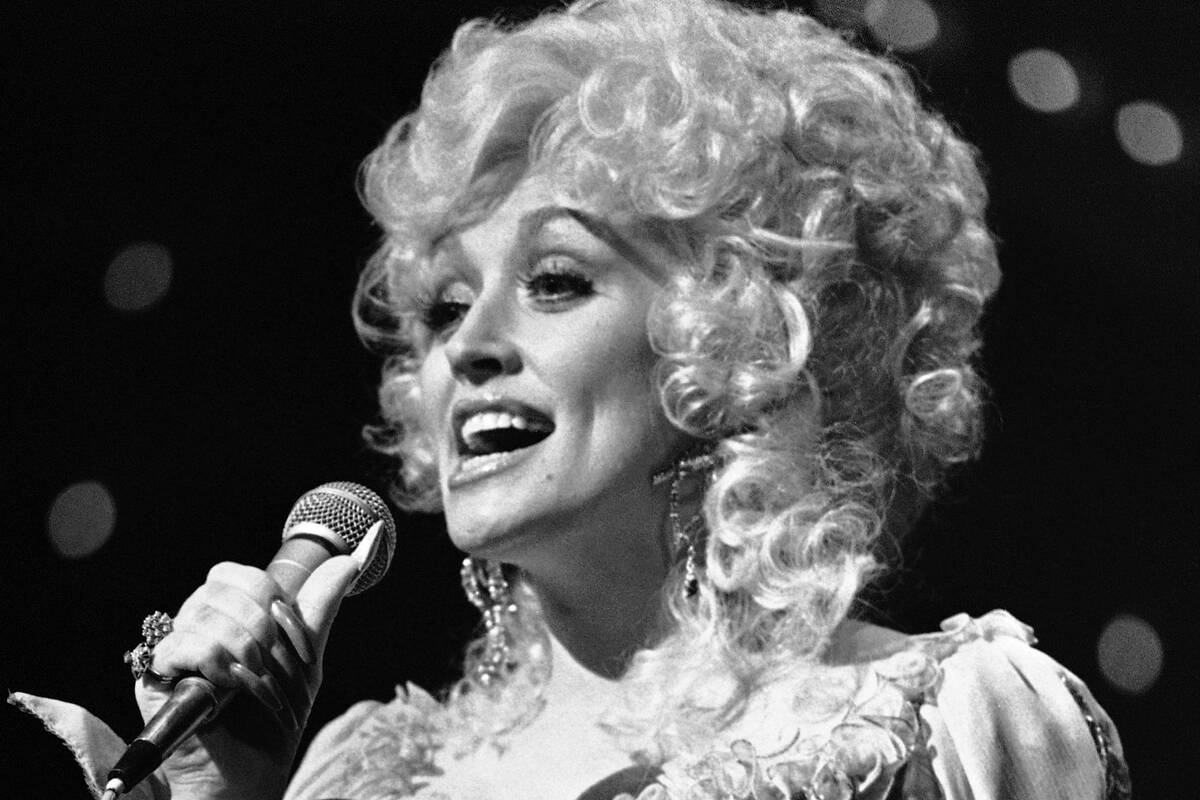New book explores legacy, lore of Dolly Parton’s ‘Jolene’
I was raised in Tucson by a classical music fanatic from Cuba and a Great American Songbook devotee from New York. While other kids’ parents might have had at least a passing interest in the music of the day — that day being the 1970s and ’80s — mine generally cocooned us in the smooth stylings of Ella Fitzgerald, Vladimir Horowitz, Benny Moré and other icons of the early 20th century, with periodic exceptions for flamenco, mariachi and Yiddish classics.
I offer the above by way of explanation, if not justification, for a grievous lapse: I got all the way to my 40s without knowing who, or what, “Jolene” was.
I mean, sure: Even as a kid, I eventually figured out there was such a thing as popular music and began self-educating with a clock radio tuned to KRQ, “Tucson’s No. 1 Hit Music Station.” But by then, “Jolene’s” big debut — first as a single in 1973, then as the title track of Dolly Parton’s 13th solo studio album in 1974 — had long since escaped me, as had Olivia Newton-John’s beloved 1976 cover. I’m not sure how to account for my obliviousness to the 2016 Pentatonix version that went on to win a Grammy. I won’t even try.
But two weeks after the a cappella group released that duet with Dolly Parton, I was heading into a babysitting gig. My friends were visiting for a wedding, and I’d be spending the evening with their toddler, Ellis, who came with special instructions. If he started saying “Doween” — and he certainly would — he was requesting “Jolene,” and I was free and encouraged to find videos immediately.
Sure enough, Ellis soon started asking for Doween and wanted very little else for the rest of the night. I dug up every video I could, and found that he was especially taken with a 1974 clip from “That Good Ole Nashville Music” with Dolly in a bell-bottom jumpsuit and sparkly lilac eye shadow.
After dozens of back-to-back viewings, you either swear off “Jolene” for all eternity or become a superfan yourself.
Now I’m the kind of person who devours entire books about the song, of which there is — as far as I know — only one: the new “Dolly Parton’s Jolene,” written by Lydia Hamessley for the Oxford University Press Keynotes Series, an exploration of the Western music canon, one song or album per volume. The author is a professor at Hamilton College, where she teaches courses on country, medieval, Renaissance and film music — in addition to serving as resident Dollyologist.
“Dolly Parton’s Jolene” comes with a website full of meticulously organized music and video clips that you’re routinely prompted to listen to or watch. So even if at first you don’t understand a particular bit of music theory, you click on the relevant music or video file, and everything makes sense. Or at least entertains you.
Such analysis — of instrumentation, scales, tempo, form, lyrics or anything else that varies from version to version — is a clear forte of Hamessley’s. But there’s a lot more to the book, with particularly layperson-friendly sections on the juicy history of the country-pop rivalry, surprising new takes on “Jolene’s” commonly accepted backstory and the extraordinary gift Parton has for songwriting. You’ll also find photos of the handwritten original lyrics to “Jolene,” complete with Parton’s notes to self about now-iconic word choices. (Turns out Jolene came perilously close to not having eyes of emerald green.)
But my favorite section of the book speaks to the improbably wide world of “Jolene” covers, of which there are hundreds. I’ve become a collector of sorts, with a particular fondness for the version in English and Lingala by the Congo Cowboys, the cumbia version by Chiquis Rivera and Becky G and the short-film version by the Indigenous Australian artist Kaylene Whiskey, to name a few. I’ve found myself obsessed with the idea that this 202-word plea to a Tennessean temptress not to “take my man” could become so globally resonant that even Nelson Mandela — when the Robben Island prison guards let him select music to play over the PA system — often chose “Jolene.”
His friend and fellow prisoner Tokyo Sexwale shared that detail on the “Dolly Parton’s America” podcast. “No human being cannot be affected by ‘Jolene,’ ” he said. “We all don’t want to lose.” In citing the Mandela example herself, Hamessley agrees that the song’s outsize power comes at least in part from that universal fear of loss — “not just the loss of a partner,” she writes, “but the loss of something bigger and more abstract and ineffable.”
Still, she contends, there’s something more at play, and it’s equally universal: yearning.
This is an excerpt from a Washington Post story.

















